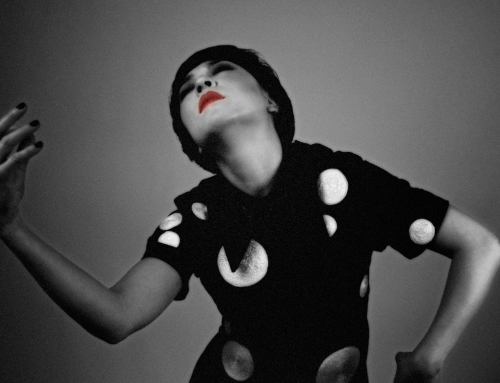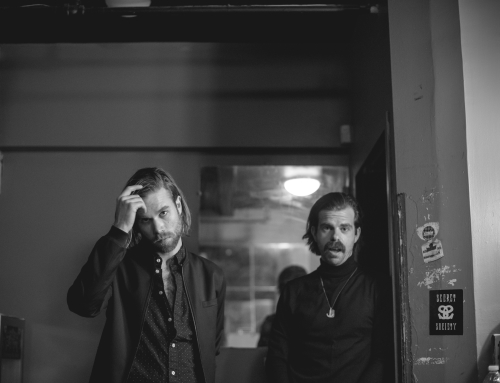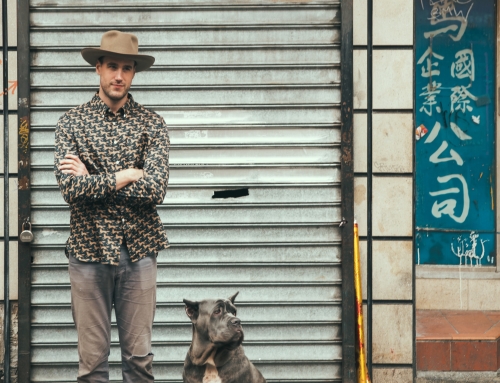Indie dream-pop duo Beach House are flourishing with the release of their fourth studio album, Bloom. A product of the eight-year creative collaboration between Victoria Legrand and Alex Scally, the album enchants listeners, taking them on an emotional journey through a myriad of light and dark. Similar to their previous records, Bloom’s visceral quality is a product of its cohesiveness — presenting a raw and honest narrative about the details that inspire art and life.
The most impressive aspect of the Baltimore-based duo is that their heavily layered sound is achieved from only two members, anchored by Legrand’s harmonious vocal range , the impact of which, cannot be overstated. With a musical precision unmatched by the plethora of indie bands who achieve the same essence of grandeur through massive ensembles, the twosome keeps listeners on their toes with a back and forth style that has been perfected since their debut.
Almost as remarkable is that despite their commercial success, the pair has retained control over their creative output, which is a testament to their artistic integrity, and seems to have had a huge impact on their sound. Recorded on old-fashioned two-inch tape (staying true to the art of sound), Bloom tells a story as visualized by Legrand and Scally from start to finish, lifted by a creative authenticity that shines through the final outcome.
Preparing to kick off their summer tour with a show at NYC’s Bowery Ballroom, marking the debut of Bloom (released today), FILLER caught up with Legrand before the promo mania to discuss how the album came about and her relationship with her career long collaborator.

Bloom seems to present a lighter, more controlled version of the same path you were running down with Teen Dream, no?
I think it’s normal that you write four records and eight years down the line you get better at what you do, and it’s very specific to your particular mind or creative universe or sound, or whatever you want to call it. I think that you just get more exacting about things, but you know when to let go and not to force it. A lot of our processes, a lot of the ways that we work and our life together have been very consistent — it has not changed — but I think that our desires for things and where we think a song can go, [with that] we really want to push things to a certain place.
A bit more intense then when it comes to the music.
I think the highs of things — the great moments — are great, and the lows are really low. And as we go along things just intensify. But in no way do I feel like any of our records [are] just a continuation of the past. Things do continue, but I do always think that it is always in the eye of the beholder. Weather somebody feels like it’s a small increment or a large increment that’s totally subjective. For Alex and I, we were in Bloom world — we are still in Bloom world — so ya, you can say whatever you want! (Laughing) We have become more exact, we have become more perfectionists, but really we are just working: working on our art, making things, and we are just busy.
Talking about being busy, how does song writing fit into your hectic touring schedule?
When you are touring or travelling or things like that, its not the same thing as being in your practice space where you just have days on end and you can spend 16 hours a day working on music. You do have these little moments that you keep, and then it might be a year, might be two years, and then one day you take that piece, and you try to bring it to life. And sometimes it takes a few days, sometimes it takes a few weeks, or it takes months for it to become what it will be, but it is very difficult to write on the road…its very difficult to write on the road.
On those moments that you mentioned keeping, what are they usually; what are those sparks of inspiration that later turn into songs?
We get an insane amount of inspiration just from living and experiencing things, not specifically from being on the road, or like in Almost Famous or something, but the experience of living is awe-inspiring all the time, for anyone. Not just for me or Alex, for you, that’s where art comes from; it’s coming from yourlife. But the writing has always happened in Baltimore. Every record we have ever put out has been written, arranged, and recorded [there]. Our life is writing, and it is Baltimore and it’s touring, it’s very fluid things and ideas for things coming all the time — they aren’t specifically limited to one place or another.
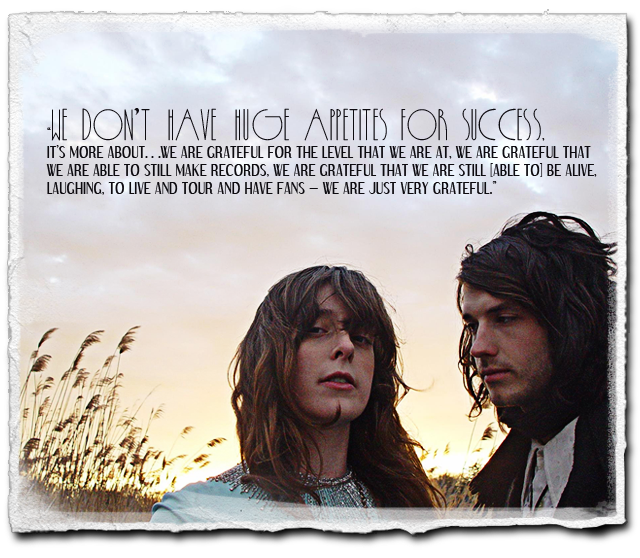
And how does that translate into a cohesive narrative and record?
All of our albums, each one we have made, have a moment where we realize, “Ok, this is a record from start to finish.” Even our first record we said, “Ok, these are nine songs, and we aren’t adding any more. This is exactly where each one should be.” We did the same thing with Devotion, we had 11 songs, and it was like, “This is exactly the order, this is exactly how I want people to travel to the record,” and then Teen Dream and Bloom.
Sounds like the order of the songs is pretty important to you two.
We care a lot about the order of the songs on our records; it’s something that has not changed for us as artists, [and] not something that is particularly new for us on Bloom, but something that we are reiterating now for people [who] are just hearing about us. We are a song band, and we write records, we don’t make one hit and have a bunch of filler. We write songs and care a lot about the work on the records.
You talk about maintaining a specific vision within your albums, and cutting specific songs that don’t tell the story you and Alex are going for. What’s that editing process like?
When you know that you have many ideas like we had with Bloom, you don’t ever have a blueprint for making a record, you just start. You have a song, and then you have another song, and it keeps building and building, and growing and informing you of what size it’s going to be or how it feels. Along the way, things just fall if they don’t work, or [if] they don’t fit: it’s not the right feel, it’s not on the level of the other ones. It’s a very intuitive process. There’s not a lot of intellectualizing about why a song doesn’t fit, it just doesn’t. It’s like well, for us, we love the song “Equal Mind,” but it did not fit on Bloom, so its B-Side, and that’s what happens to the songs that for one reason or another don’t make sense in the album.
I guess each one has its own specific identity, that either melds with others or not.
They are their own songs; they don’t need to be on the album because they can just exist on their own. And “Equal Mind” is an example of that. So, sometimes it’s a little sad, but its not — it’s just meant to be. It can be a beautiful thing, it’s not like, you know, if we were on a major label and some guy comes in and makes us scrap the whole thing, I feel very lucky that that is something I will never have to deal with. Alex and I are always going to be the ones who decide what we do and [what] goes on the album, and what doesn’t go on the album. You can’t force something to fit into a record, it just does or doesn’t. And that can be a really liberating moment when you realize that it just doesn’t. At least for us…it’s not about just throwing a bunch of songs together.
What about in the studio, tell me about the process of perfecting the sound on this record?
In terms of sound, this record, as well as the last one, was recorded on two inch tape, I don’t know if you are into nerd information. I think it’s something important because it’s not just made on the computer. It’s always been an important thing for us. Whether it was four tracks, eight tracks, ultimately what we are working with is songs and sounds, and the way that they make you feel…and melodies. [There’s] a lot of traditional song craft that goes into what we do. There are a few moments on Bloom that I think are very special.
Like?
“Irene” is a live take, and it’s recorded on live take, and I think it was the first take. When you are working with tape, things take a lot longer because you do a whole take, and it’s not like when you are on a computer and you just cut and paste. It’s kind of old-fashioned, but it can be really rewarding in terms of just creating a moment for you where that just happened, and now it’s forever.
That kind of thoughtful musical process is now a rarity, unfortunately.
Working with tape machines and intellect boards is a skill that is dying I think. It’s special and means something to us.
And it works, I love the way Beach House has such a modern sound, but goes about creating it in an old-fashioned way.
There’s like an ethics to it too because you can do things with pro tools and stuff too…but it does work well with our sound, and our instruments and our taste in things. I don’t know…a lot of it is just based on we like it and we use it.
I think a lot of people expect you would sound the same live, but for anyone who has seen you in concert, they know how different a live experience is from listening to the album. How do you perform an album like Bloom, with its quiet tempo?
Sonically, I feel that there are always variations, but I feel that live things are more intense somehow, because sonically we aren’t a quiet group. I think that might also be a misconception to those who haven’t heard us [live] before. There is a lot of heaviness to it, and I think that the songs actually take a whole new life form. They always sound bigger and more massive, because you are feeling it live, there are vibrations, and we hope that it just washes over people. It can be an intimate experience, but also a physical experience as well.
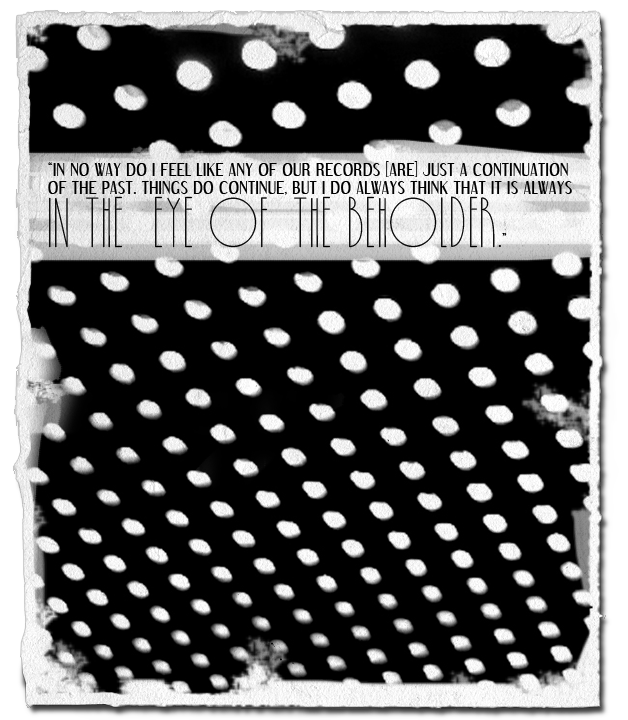
Back to the creative process, how does your relationship with Alex shape your sound?
We are lucky because the way that we exist together allows us to create easily together, and work really well together. As far as the effect of the relationship on the music…I have no idea, but the actual working together is something that has been one of the most fruitful working relationships that I have ever had, and something that I don’t take for granted. Us making records consistently is just proof of the fact that we have a very natural creative rhythm. We aren’t holding things back, we are putting things out because we feel compelled to, and that this is our time in life to be creative and to work, and to really experience this life that we have built ourselves…and that continues to grow. [We’ll] see where it takes us.
What about the future, what do you see for Beach House down the road?
We don’t have huge appetites for success, it’s more about we are grateful for the level that we are at, we are grateful that we are able to still make records, we are grateful that we are still [able to] be alive, laughing, to live and tour and have fans, we are just very grateful. We will just take every day as it comes and as long as we are able to work together and communicate with the language that we use — a lot of it is based on intuition: things feeling right and trusting things. As long as that continues, we will continue making music, art ,and everything that’s fun about creating and collaborating.
Your dedication to the band’s artistic vision is more than apparent. Keeping that in mind, when the opportunity to do something more mainstream, like a commercial (such as the admittedly “funky” Guinness ad Beach House loaned their sound to) how do you decide about getting involved or not?
I think that artists for all of time have been lending their songs, and companies use songs in commercials. I will say for us, doing the Guinness commercial or anything, there has to be a certain level of artistic quality to it. It can’t just be some evil corporation, or a dumb stupid commercial that has nothing to it — we won’t do that. With the Guinness thing, it was specifically an Irish company and also, it seemed to us harmless. We saw the commercial as actually not a bad one at all. It has a lot of creativity inside of it, and is something imaginative, something more than just somebody drinking a beer in a bar.
Is it also a financial decision?
Artists need to survive and will do things because it’s a living, and artists deserve to and need to live off of [their] art. But as far as discerning what and where and who you let use your music, that is something that we are very conscious about. I think that is the only commercial we have ever done, and we turn things down frequently because it’s just shit, and so we try to be very discerning because it is our music after all, and we don’t want to do something that tally ruins everything for a fan. We aren’t going to see a huge paycheck and say “Yeah! sign me up for this trend.” It’s not the 80s anymore where people are throwing millions of dollars in your face. There is a lot of devaluation going on, so it’s not even about money really, it about a small mount of money, but when you are an artist and you have a publishing company and this and that, you want to have your music in films and TV, but it can be difficult to filter through where the music goes, but it’s not that hard…you just need to have eyes and a heart (laughing)…and some sort of integrity.
What do you think of bands that aren’t so discerning?
Every band is different, some bands don’t care, and they want to have their songs in everything. They don’t care that their song is in a food commercial, and that every personal at their show is a person who saw the Ford commercial and doesn’t know the rest of their songs. And that’s fine, I’m not preaching about that, but for us, we need to maintain some level of something special, so that’s our ethics.








